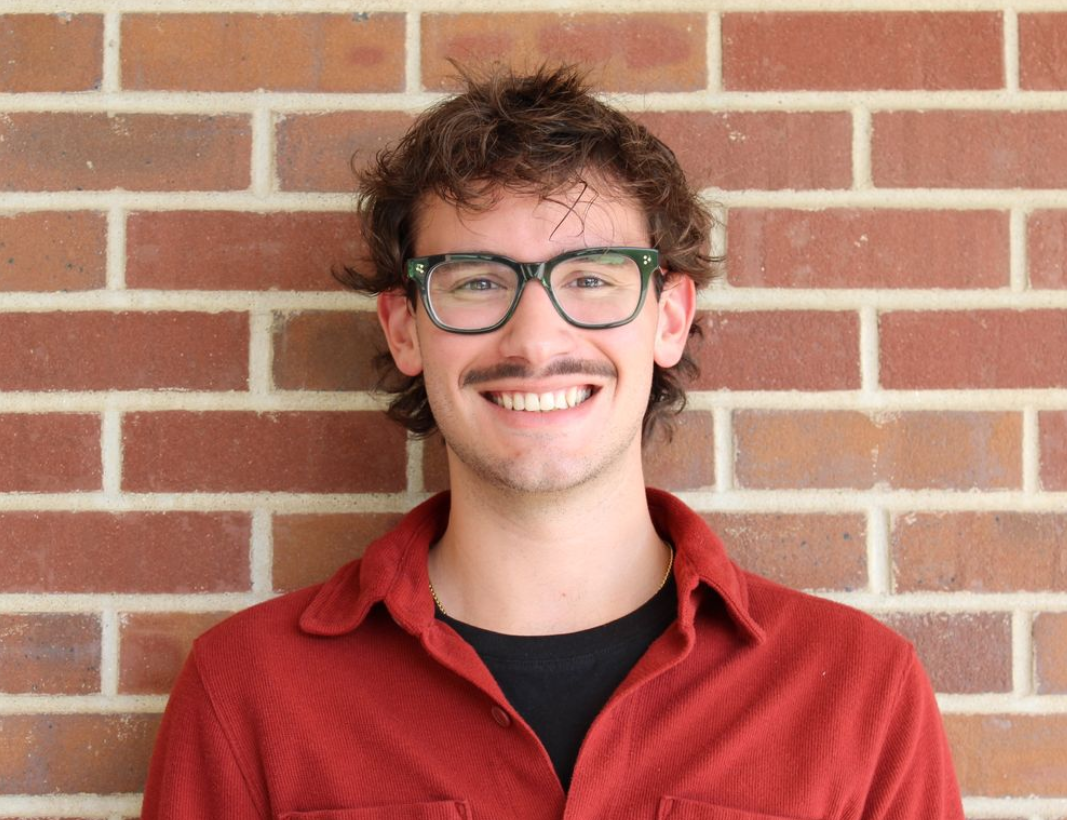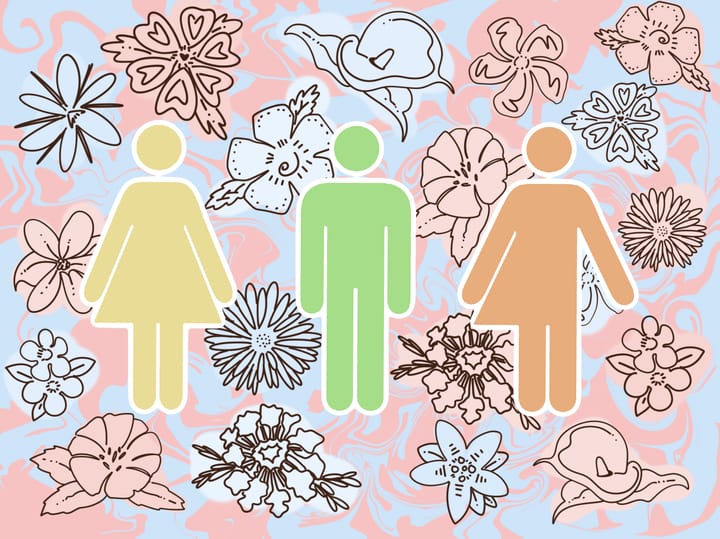Augustana needs more LGBTQ+ visibility

In a conservative-leaning state like South Dakota, liberal arts universities have a unique opportunity to give minority communities a place to feel safe and teach the community what it means to be inclusive, equitable and diverse.
But lately, I’ve noticed a severe lack of consideration for sexuality and gender minorities at Augustana.
Besides our campus’ Gender and Sexuality Alliance chapter who recently co-hosted the annual drag show — celebrating queer and transgender identities — very few queer activities are available until a student turns 21 and is able to venture out to clubs, including Club David, the only gay bar in the whole state of South Dakota.
A recent study found that “one in five Gen Z adults identify as LGBTQ+.” As of Sept. 12, 2023, 2,158 students attend Augustana at least part-time. Roughly speaking, that means 360 students, or 16.7% of the student population, are likely to identify as part of the LGBTQ+ community.
Arguably, this number could be lower at small, Christian universities like Augustana; however, a 2022 study found that roughly 40% of students who attend liberal arts universities identify as LGBTQ+.
Even in a very conservative-leaning state, Minnehaha county cast over 25% of the states’ ballots for Joe Biden in the 2020 Presidential Election, more than any other South Dakota county, according to the South Dakota Secretary of State.
Although the exact number of LGBTQ+ students on Augustana’s campus is unknown, there are more queer individuals among us than many in our population may care to admit.
Due to Christian nationalism and party polarization between democrats and republicans, support for key LGBTQ+ policies is declining.
The Public Religion Research Institute is a “nonprofit, nonpartisan research institute” that conducts nationwide polling on a variety of topics, particularly on “political issues as they relate to religious values.” Every year, PRRI asks 22,000 Americans their opinion on matters relating to key LGBTQ+ policies.
In 2020, among the 18-29-year-old population, 89% who aligned with the democratic party supported nondiscrimination protections for LGBTQ+ peoples, and 72% who aligned with the republican party felt the same.
In 2023, support had shifted: among 18-29-year-old Americans, democratic support rose by a percent, but republican support dropped by a whopping 19%. For all 18-29-year olds, support fell from 83% to 75%.
Additionally, support for same-sex marriage among 18-29-year-old democrats rose overall from 83% in 2020 to 85% in 2023. For republican 18-29-year-olds, support dropped from 64% to 49% between 2020 and 2023. For all 18-29-year-olds, support for same-sex marriage trended downward from 77% in 2020 to 71% in 2023.
In April 2024, CEO of PRRI Melissa Deckman spoke to PBS about these key findings.
“It’s really party polarization that is driving down support for same-sex marriage, for example,” Deckman said in regard to the 18-29-year-old population.
Deckman cited Christian nationalism, a belief that a country should make policies and decisions based on Christian values, as a key contributor to republican opposition for LGBTQ+ policies.
According to PRRI, rejectors and skeptics of Christian nationalism, 74% and 93%, respectively, supported same-sex marriage policies. In contrast, for adherents and sympathizers of Christian nationalism, only 22% and 44%, respectively, supported same-sex marriage policy.
With the rise of dangerous Christian nationalist groups across the country, particularly those aiming to recruit college students on university campuses, more and more queer people begin to feel unsafe, unwelcome and unwanted by institutions that allow for the harmful rhetoric these groups often spread.
Meanwhile, as support for key LGBTQ+ policies decline, the hate-crime-related murder of innocent LGBTQ+ people continues across the country.
In 2023, the Human Rights Campaign reported that nearly “500 gender identity-motivated hate crimes were reported” in 2022. Victims of racism and transphobia, black trans deaths go largely unnoticed; oftentimes, many trans violence cases go unreported or misreported by officials and the press.
In such a conservative state, Augustana has a job to not only bolster individuality and identity but to lead and teach the broader community what it is to be diverse, equitable and inclusive to LGBTQ+ people.
With the addition of a new gender, sexuality and women’s studies minor, Augustana was taking a step in the right direction. Social and political topics related to the minor’s focus are becoming more and more important as support for women’s rights, same-sex marriage and nondiscrimination protection declines.
Then, with the Commons renovations came Chick-fil-A, a restaurant chain that had previously donated $1.65 billion to the Fellowship of Christian Athletes and $115,000 to the Salvation Army, both organizations that had publicly shared anti-LGBTQ+ rhetoric. With the addition of the restaurant, the university took a big step in the wrong direction, ignoring and sacrificing an entire subpopulation’s identity when choosing to support Chick-fil-A on the basis that it would attract more students.
Now, with the resurrection of a campus chapter of a known Christian nationalist organization, Augustana has created for itself an even more difficult job: protecting students’ rights to freedom of speech and celebrating the young LGBTQ+ subpopulation that continues to grow year after year.
One can be Christian and still support LGBTQ+ policies. PRRI found that a vast majority of people of faith continue to support same-sex marriage and nondiscrimination protections laws, as PRRI has reported in recent years, Deckman said in her interview with PBS.
The PEW Research Center conducted the Religious Landscape Study in 2014 and found that the largest religious affiliation of South Dakota residents was mainline protestant at 32%. According to PRRI, 77% of white mainline protestants still supported same-sex marriage in 2023, up from 62% in 2014.
There becomes such a division between individuals, groups and parties based on assumptions — assumptions that democrats are lazy, that republicans are close-minded, that Christians don’t support LGBTQ+ rights, that children’s books and drag queens are grooming your kids, to name a few — that it becomes nearly impossible to not associate parties with extremist views.
Having open and honest conversations about politics is what begins to break down those assumptions. Recognizing others’ views as different from your own and still having a conversation is something that we all could get better at.
As liberal arts students, faculty and administration, the Augustana community has the unique ability to facilitate these discussions and to make lasting changes to diversity, equity and inclusion in the community. Actions against the LGBTQ+ community keep occurring, and the excuse that “it isn’t purposeful” does not excuse the damage done to its LGBTQ+-identifying population.
Just as large projects consider financial and environmental effects, LGBTQ+ and other minority groups’ well-being and safety should always be considered and researched as an effect of significant change, whether that be a new dining option, a new professor or support for a new club, to those living and studying at Augustana.



